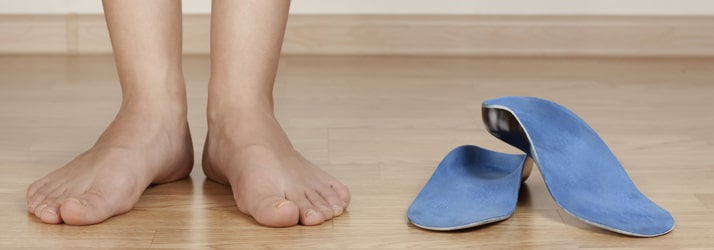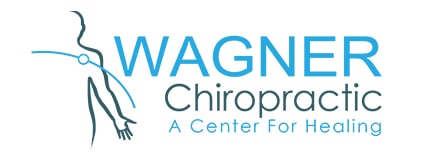NeuroMed: Electroanalgesia’s Neural Treatment for Neuropathies

Neuropathy in Eustis is a disease or dysfunction of one or more peripheral nerves(1), especially those that branch out through the arms, legs, fingers and toes and typically cause numbness, weakness, tingling, and burning or painful sensations. Approximately 20 million people suffer from some form of neuropathy. Diabetes is the most prevalent cause of neuropathy, but peripheral neuropathy (described below) can arise from toxic trauma (chemotherapy and other drugs, environmental toxins), biomechanical injury such as carpal tunnel syndrome, or by placing consistent pressure on nerves through various activities (described below). Certain relatively common diseases may also be to blame.
In addition to neuropathies caused by toxic trauma, diseases and biomechanics injuries, types of neuropathies can generally be divided into groups: 1) diabetic which includes peripheral, focal, proximal and autonomic neuropathies; 2) neuropathies caused by poor nutrition, called nutritional neuropathy; 3) hereditary neuropathy.
In cases of neuropathy stemming from diabetes, over time, high blood sugar and high levels of fats in the blood from diabetes (triglycerides)(2) and small nerve-nourishing blood vessels damage the nerves. If you have diabetes, your chance of developing nerve damage increases both with age and with the length of time you have had diabetes.
The combination of diabetes and overweight, high blood pressure, high cholesterol, advanced kidney disease, smoking and more than moderate alcohol consumption increases your likelihood of nerve damage, so managing your diabetes is critical to preventing the forms of diabetes-associated neuropathy.
Peripheral neuropathy is a condition that may develop from other medical disorders like diabetes or malnutrition (mentioned below). Peripheral neuropathy signals overall compromised health or other major medical condition. Approximately half of all diabetic patients experience peripheral neuropathy. Often it is assumed that those who have neuropathy are diabetic which is not always the case.
Peripheral neuropathy is very common and typically affects the feet and legs and sometimes the hands and arms on one or both sides of the body with pain, burning, tingling, pins and needles feeling, numbness, weakness, and sometimes an inability to sense pain or temperature in parts of the body. When pain is felt it may be extreme even when the limb is touched lightly. Symptoms are often worse at night.
If you have peripheral neuropathy, you may also experience:
- changes in your gait
- imbalance, dizziness
- loss of muscle tone in your hands and feet
- swollen feet
- pain when walking
- challenges sensing movement or position
Autonomic neuropathy is damage to nerves that control your internal organs. Symptoms arising from a change in heart rate and blood pressure, digestive system, bladder, sex organs, sweat glands, eyes, and ability to sense hypoglycemia(3) occur as a result of this form of neuropathy.
Focal neuropathies are conditions in which a person typically experiences damage to single nerves, most often located in the hand, head, torso, and leg. A variety of different focal neuropathies can affect people who have diabetes and often those that don’t have diabetes. Entrapments are the most common type of focal neuropathy occurring when nerves become compressed or trapped in nerve passageways between bones and tissues. People with diabetes are more likely to have entrapments than people without diabetes.
Hereditary Factors
Research also suggests that certain genes may make people more likely to develop diabetic neuropathy affecting the peripheral nervous system(1).
Additionally, symptoms of hereditary neuropathies, occurring at birth or ultimately developing in middle or later life, vary according to the type of neuropathy and may include:
- sensory symptoms such as numbness, tingling, and pain in the feet and hands
- motor symptoms like weakness and loss of muscle mass, particularly in the lower leg and feet muscles.
Certain types of hereditary neuropathies can affect the autonomic nerves causing symptoms such as impaired sweat function, “head rush,” or inability to sense pain. Some people may have foot deformities such as high arches and hammer toes, thin calf muscles (having the appearance of an inverted champagne glass) or scoliosis (curvature of the spine).
“Nutritional Neuropathy”
Mal- or poor nutrition can adversely affect all areas of the nervous system. Nutrition is negatively impacted by alcohol abuse, eating disorders, medical conditions affecting proper nutrient absorption(4), older age, pregnancy, and socioeconomic factors arising from homelessness and lower economic status.
When it comes to neuropathy treatment, your best course of action may be to consult with your nervous system specialist–your chiropractor! Chiropractors’ main goal is ensure that their patients’ bodies’ nerves perform optimally creating an internal environment that allows the nervous system to transmit all its messages successfully through the nerves so that you can live a healthy vibrant life.
Chiropractic effectively employs adjustments, Matrix, low level laser therapy and whole body vibration to increase circulation to the neuropathically targeted areas to help alleviate pressure from the affected nerve or nerve group. Our comprehensive strategy that has proven well at Wagner Chiropractic also includes Matrix electro-analgesia—stimulation therapy, Class III cold and Class IV low level laser therapy (LLLT), whole body vibration and nutritional counseling.
Neuropathies can be helped even when they’ve been a problem for a long time. As a part of NeuroMed, we utilize electroanalgesics to treat neuropathic pain and to avoid medications like Lyrica, Neurontin, Tegretol, and Gabapentin.
At Wagner Chiropractic we use NeuroMed technology for a natural non-invasive approach to nerve damage and circulation issues and pain resulting from neuropathies. Call us today and come have a free tour of our center with a consult afterwards with Dr. Wagner.
- the nervous system outside the brain and spinal cord
- the main constituents of natural fats and oils; high concentrations in the blood indicate an elevated risk of stroke.
- when blood sugar decreases to below normal levels characterized by symptoms of clumsiness, difficulty speaking, confusion, loss of consciousness, seizures or death
- (4) gastrointestinal problems, inflammatory bowel disease, fat malabsorption, chronic liver disease, pancreatic disease, gastritis, and small bowel obstruction
Endnotes:
“Peripheral Neuropathy.” National Institute of Diabetes and Digestive and Kidney Diseases, U.S. Department of Health and Human Services, 1 Feb. 2018, www.niddk.nih.gov/health-information/diabetes/overview/preventing-problems/nerve-damage-diabetic-neuropathies/peripheral-neuropathy.
Hammond M. D., Nancy et al. “Nutritional Neuropathies” Neurological Clinics, Elsevier Editorials Ltd., U.S. National Library of Medicine, May 2013, https://www.ncbi.nlm.nih.gov/pmc/articles/PMC4199287
“Focal Neuropathies.” National Institute of Diabetes and Digestive and Kidney Diseases, U.S. Department of Health and Human Services, 1 Feb. 2018, www.niddk.nih.gov/health-information/diabetes/overview/preventing-problems/nerve-damage-diabetic-neuropathies/focal-neuropathies.
“Proximal Neuropathy.” National Institute of Diabetes and Digestive and Kidney Diseases, U.S. Department of Health and Human Services, 1 Feb. 2018, www.niddk.nih.gov/health-information/diabetes/overview/preventing-problems/nerve-damage-diabetic-neuropathies/proximal-neuropathy.
“What Is Diabetic Neuropathy?” National Institute of Diabetes and Digestive and Kidney Diseases, U.S. Department of Health and Human Services, 1 Feb. 2018, www.niddk.nih.gov/health-information/diabetes/overview/preventing-problems/nerve-damage-diabetic-neuropathies/what-is-diabetic-neuropathy.
“Hereditary Neuropathies Information Page.” National Institute of Neurological Disorders and Stroke, U.S. Department of Health and Human Services, www.ninds.nih.gov/Disorders/All-Disorders/Hereditary-Neuropathies-Information-Page.
OFFICE HOURS
Monday
7:15am - 4:30pm
Tuesday
7:15am - 4:30pm
Wednesday
Closed
Thursday
7:15am - 4:30pm
Friday
7:15am - 3:30pm
Saturday
Closed
Wagner Chiropractic
2775 South Bay Street
Eustis, FL 32726
(352) 589-5443



